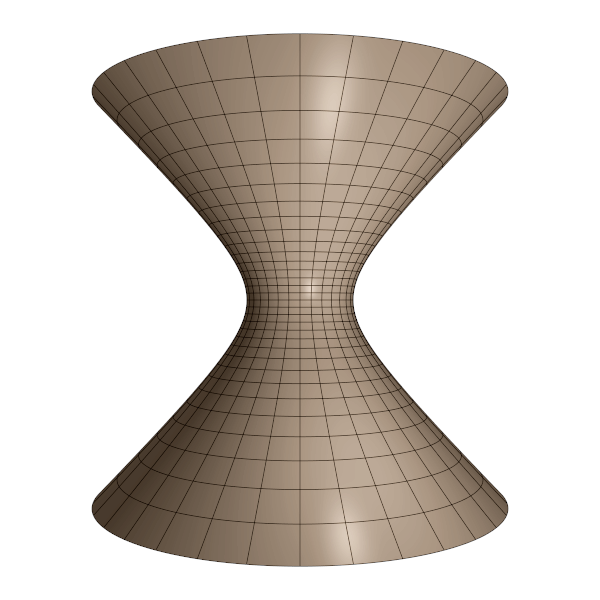Butterfly curve
Object type: Plane curve
Definition
In $\mathbb{R}^2$, the butterfly curve is the image of $$t\mapsto \left(e^{\sin{t}} - 2\cos{\left(4t\right)} + \sin^5{\left(\frac{2 t - \pi }{24}\right)}\right) \underline{\mathbf{e}}\begin{pmatrix}\cos{t} \\ \sin{t} \end{pmatrix}$$ on some interval. Below the interval is $\left[0, 100\right]$.
The butterfly curve is often refered to by its 'polar equation' $$r = e^{ \sin{\varphi}} - 2\cos{\left(4\varphi\right)} + \sin^5{\left(\frac{2\varphi-\pi} {24}\right)}$$ although this is abuse of notation, since this latter curve only corresponds to a part of the 'actual' butterfly curve, since the polar coordinates are restricted to $r \ge 0$ and $\varphi \in \left[0, 2\pi\right[$. The curve given by the polar equation is shown below.
